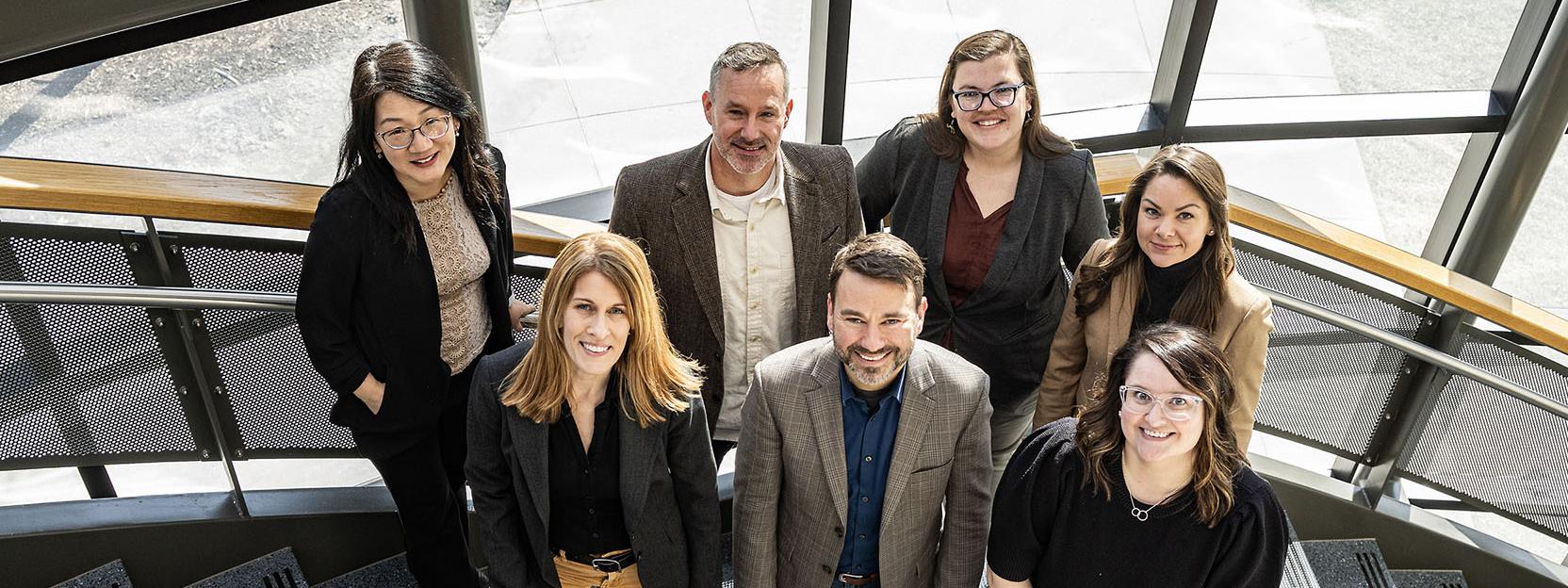
CELT continues evolving to help faculty grow
By Blake Sebring
April 2, 2024
Few units have evolved as much recently as the Center for the Enhancement of Learning and Teaching. Adam Dircksen became CELT’s executive director in 2017 and said he doesn’t do today a lot of what he thought he would be doing back then, but that’s for a good reason.
“We are constantly adapting to meet the changing teaching development and support needs of Purdue University Fort Wayne faculty, and we have built a team and collaborations with faculty so that we do that really well.”
Recent statistics conclusively prove more faculty members are taking advantage of CELT’s services. From 2019 to 2023, there has been a 95% increase in one-on-one consultations, 145% increase in workshops offered, and a 216% increase in workshop participation. The increases are even more dramatic for certificates awarded, peer review attendance, and teaching fellow consultations.
The center’s mission is to work with instructors to enhance student learning outcomes through continuous improvement of teaching practices. Essentially, the CELT staff partners with any of PFW’s teaching staff to address whatever is asked for. If a professor wants to redesign a class, work on engaging students more effectively, or become more proficient at online presentations – or any other teaching-related needs – CELT members will work to offer suggestions and implement the faculty’s choices.
“It’s not a process of making them look like me or act like me in the classroom, but where can I be of assistance?” said Kevin Stoller, instructional design consultant for CELT and senior lecturer in communications.
Heidi Jung, CELT’s lead instructional designer of educational technologies who has 30 years of experience at multiple universities, said staff members explore answers together with faculty.
“Sometimes people jokingly call us the teacher of teachers, but I always make it clear that our true role is to support and help them develop,” said Katie Jia, associate director of educational technologies. “We are here to help figure out the best options for them and assist them in their growth.”
The university’s response to the COVID-19 pandemic required immediate changes in 2020 as CELT helped faculty adjust to remote and online teaching and a new learning management system. It also prompted the unit to reframe its focus while expanding from four to seven team members.
About half of CELT’s team started out as educators in the classroom and continue to teach. All have doctorate and/or master’s degrees in instructional design and instructional technologies and continually study new techniques. The staff composition is intentional, Dircksen said, as it creates an environment where faculty can receive multiple perspectives by using CELT’s various options.
“I always felt like I was having a positive impact on the world,” said Rachel Ramsey, assistant director of faculty teaching development and a former nursing faculty member. “This position has allowed me to develop that skillset in ways that I didn’t anticipate, and now feel like I have an even bigger ripple effect. I’ve been able to connect with faculty to talk about teaching, and not just to improve their teaching, but to give them space to explore teaching and fulfillment and excitement in their teaching.”
CELT members study the art and science of teaching to provide resources when those standing at the front of the classroom ask for help or a way to explore a different trek.
“We are completely service-oriented,” Dircksen said. “We are not making decisions for people, we’re partnering with them to get their needs met. Any resource and growth that we have in this office is in service to faculty to make their jobs more streamlined, better, and more enjoyable.”
And that also makes their job more enjoyable. Jia said the joy is working with those who are so passionate about teaching, which is inspiring.
The entire process is as private as the faculty member wants it to be. CELT doesn’t report to department chairs or the vice chancellor of academic affairs who took advantage of its services, including who may acquire a certificate from an offered program.




